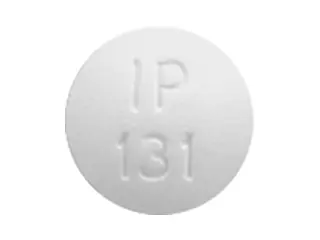Arthritis
Find effective arthritis relief products designed to reduce pain, improve joint mobility, and support a healthy lifestyle. Shop trusted medications, supplements, and topical treatments to manage arthritis symptoms and enhance daily comfort.
Arthritis is a common condition that causes pain and inflammation in the joints. It affects millions of people worldwide. Treating arthritis often involves the use of medications to reduce symptoms and improve quality of life. Many drugs are available, each with specific benefits and possible side effects. Here, we review some popular medications used in arthritis treatment.
Allopurinol is mainly used for gout, a type of arthritis caused by excess uric acid. It works by reducing uric acid production in the body. Patients often take allopurinol daily to prevent gout attacks. It is not used to relieve acute pain but for long-term management. Common side effects include rash and upset stomach. Monitoring by a doctor is necessary when using this medication.
Anaprox is a brand of naproxen, a nonsteroidal anti-inflammatory drug (NSAID). It helps to reduce inflammation and relieve pain. It is effective in treating symptoms of osteoarthritis and rheumatoid arthritis. People usually take it twice a day. It can cause stomach upset or increased risk of bleeding if taken long-term. Drinking plenty of water and taking with food may reduce stomach issues.
Arcoxia, known generically as etoricoxib, belongs to a class of drugs called COX-2 inhibitors. It is designed to reduce pain and inflammation with fewer stomach side effects than traditional NSAIDs. Arcoxia is often prescribed for osteoarthritis and rheumatoid arthritis. Patients report good relief from joint pain using this drug. However, it may increase the risk of cardiovascular problems. It requires careful use under medical supervision.
Colchicine is another drug used mainly for gout attacks. It works by reducing inflammation caused by uric acid crystals in the joints. Colchicine is taken during acute attacks to relieve pain and swelling quickly. It has a narrow safety margin, meaning the dosage must be carefully controlled to avoid side effects such as diarrhea or muscle pain.
Feldene, or piroxicam, is a long-acting NSAID. It offers pain relief and reduces inflammation in arthritis patients. Due to its long half-life, it can be taken once daily, which improves patient compliance. Side effects can include gastrointestinal issues and increased sensitivity to sunlight. Patients are advised to use sunscreen and avoid excessive sun exposure while on Feldene.
Indocin, known as indomethacin, is another powerful NSAID. It is effective in treating inflammation and pain from various types of arthritis. Indocin is commonly used in cases of ankylosing spondylitis and gout as well. It acts quickly but may cause stomach problems more than other NSAIDs. Regular monitoring of kidney function and blood pressure is recommended during treatment.
Mobic, with the generic name meloxicam, is a popular NSAID for arthritis management. It offers good pain control with once-daily dosing. Mobic is often better tolerated than older NSAIDs, with a lower risk of stomach irritation. It helps patients with osteoarthritis and rheumatoid arthritis stay active. Like all NSAIDs, it should be used with caution in people with heart or kidney concerns.
Motrin is a widely used brand of ibuprofen. It is effective for reducing pain, inflammation, and swelling in arthritis. Motrin works well for mild to moderate arthritis symptoms. It is often chosen for short-term use due to its relatively safe profile. However, frequent use or high doses may increase the risk of gastrointestinal problems and cardiovascular events.
Naprosyn is another brand name for naproxen, similar to Anaprox. It relieves arthritis pain and inflammation with a relatively long duration of action. Naprosyn is helpful for patients who need consistent pain control throughout the day. It may cause side effects like heartburn, nausea, or dizziness. Patients should avoid alcohol and use the lowest effective dose.
Neoral contains cyclosporine, an immunosuppressant sometimes used in severe rheumatoid arthritis cases. It suppresses the immune system to reduce inflammation. Neoral is reserved for patients who do not respond well to standard therapies. The drug requires close medical supervision due to potential side effects like kidney damage and increased infection risk.
Zyloprim is another brand of allopurinol. As mentioned, it lowers uric acid levels and helps prevent gout-related arthritis attacks. Like allopurinol, it is not for immediate pain relief but for ongoing management. Starting doses are low and increased gradually to minimize side effects. Patients must stay well hydrated and have regular blood tests while on Zyloprim.
Choosing the right arthritis medication depends on the type of arthritis, symptom severity, and individual health factors. NSAIDs like Anaprox, Mobic, Motrin, Naprosyn, Feldene, and Indocin are common first-line choices for pain and inflammation. For gout, drugs like allopurinol, colchicine, and Zyloprim are preferred. COX-2 inhibitors such as Arcoxia may be suitable for patients who cannot tolerate traditional NSAIDs. Immunosuppressants like Neoral are reserved for severe or resistant cases.
All arthritis medications can have side effects. Common issues include stomach upset, increased risk of ulcers, kidney problems, and cardiovascular risks. Patients need to follow their doctor’s instructions carefully. Regular monitoring and reporting of any unusual symptoms are important. Lifestyle changes, such as diet, exercise, and weight management, can also enhance the effectiveness of medications and improve overall joint health.
In summary, arthritis treatment involves a range of medications tailored to the individual’s condition and needs. Understanding the benefits and risks of each drug helps patients and doctors make informed choices. With proper use, these medications can significantly reduce pain and improve daily functioning in people living with arthritis.










